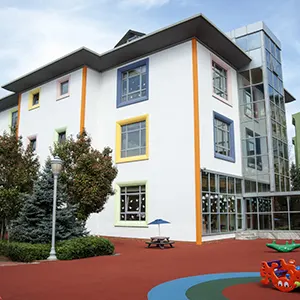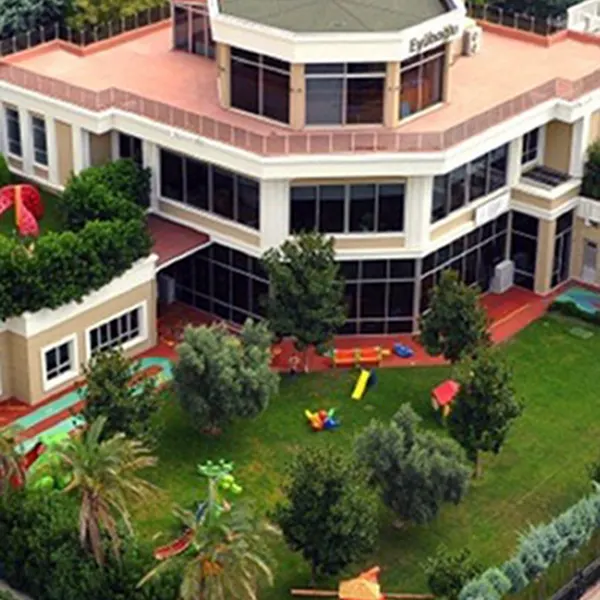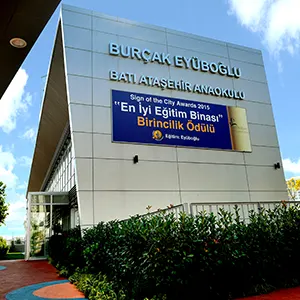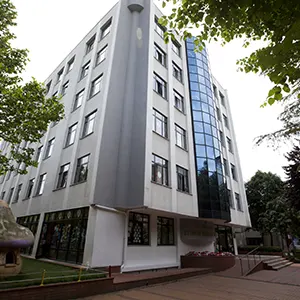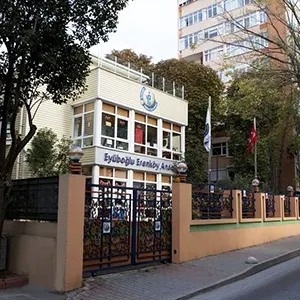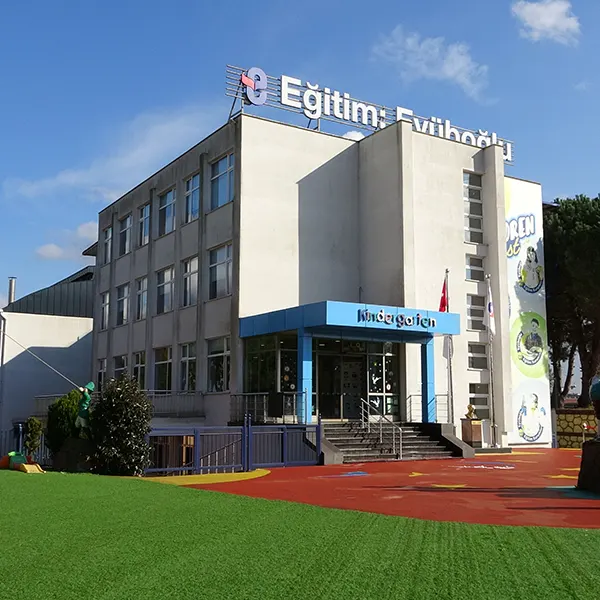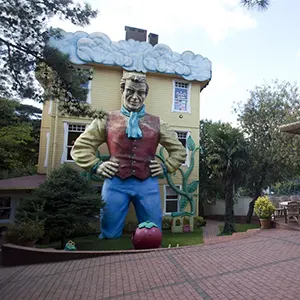KINDERGARTEN ACADEMIC PROGRAM
KINDERGARTEN ACADEMIC PROGRAM
Our educational program is a play-based learning program created by integrating the Ministry of National Education curriculum with the International Baccalaureate Primary Years Programme. Our curriculum is a play-based learning program created by integrating the Ministry of National Education and the International Baccalaureate Primary Years Programme. The main goal of the program is to cultivate internationally-minded individuals who are conscious of human values, sensitive to differences, knowledgeable about local and global issues, and committed to lifelong learning. It fosters an environment where the teacher guides, and the student actively engages in thinking, critiquing, and respecting others' thoughts and experiences.
In our kindergartens, different PYP inquiry units are addressed throughout an academic year. Activities within the inquiry units are planned in both Turkish and English, including Language Arts, Play, Movement, Music, Science, Mathematics, Drama, Art and Pre-Reading and Writing Activities. These activities support students’ cognitive, emotional-social, language, psychomotor, aesthetic, and self-care development and serve for inquiry and conceptual learning.
The program for 3&4-year-olds is half-day English and half-day Turkish, while our reception groups follow an intensive English program. The curriculum is enriched with activities in mathematics, science, social studies, language arts, pre-reading and writing, music-movement, drama, and art. Additionally, our program includes activities such as physical education, visual arts, information technologies, dance, chess, gymnastics, yoga, music, English drama, swimming, and folk dance, allowing students to discover their interests and talents. Subject lessons are conducted by expert teachers in each field.
The purpose of language activities is to enable students to express themselves effectively in their mother tongue. Through presentations, in-class discussions, show-and-tell, and creative reading activities, students not only enhance their language and communication skills but also build confidence in expressing themselves.
Pre-reading and pre-writing activities are integrated into the curriculum in a way that aligns with the developmental characteristics of students. At the age of 3, activities focus on recognizing symbols, supporting fine motor skills, and engaging in visual/auditory attention exercises. Starting from the age of 4, phonetic letters are introduced to students. In the reception level, integrated sound studies take place alongside these activities.
The primary goal of drama activities is to support students' social and emotional development, providing opportunities for them to express themselves collaboratively. Drama activities, highly beneficial for social development, are observed to help students who struggle with communication gradually improve their self-expression and develop confidence over time.
Mathematics activities aim for students to discover the connection between mathematics and daily life. Activities such as reading and creating graphs, rhythmic counting exercises, pattern studies, recognizing numbers and shapes, and solving simple problems help students grasp mathematical concepts. Worksheets prepared by teachers, taking into account individual differences, enrich the learning experience.
Science and Nature activities aim to spark curiosity in students, promote experiential learning, and cultivate an interest in science. In order to develop a scientific perspective, age-appropriate and enjoyable science experiments are conducted with laboratory teachers in each unit. These experiments enhance students' observation and recording skills.
Free time activities provide teachers with time periods where students delve into their boundless imaginations, and educators observe them in the best possible way. During this process, observations about students' communication with their peers and their interests help educators gather more information about each student. Students are directed by their teachers to explore different learning centers within the classroom to discover their interests.
Believing that the best time to learn a foreign language is in early childhood, our English program, specially developed for Eyüboğlu Kindergartens, is delivered by both Turkish and foreign teachers. Our students naturally communicate with their teachers, gaining a unique cultural and linguistic experience, and are raised to be bilingual.
The program aims to cultivate our students' interest in a new language and ensure their enjoyment in learning it. It focuses on developing language skills through meaningful learning experiences while supporting cognitive development in science, mathematics, and art. Additionally, it encourages the application of skills acquired in other subjects to the English lessons.
The main goal of the program is to enhance students' listening, comprehension, and speaking skills while introducing them to reading and writing through phonics studies. The English curriculum is developed in line with PYP language objectives and general language goals. Classroom teachers and English teachers collaborate in planning activities in line with the program's philosophy. The continuity of activities conducted in the native language into the English class allows students to perceive the program as a whole, creating an opportunity for English to develop naturally. The English program provides students with engaging and enjoyable learning experiences through stories, rhymes, art activities, games, drama, and real-life connected activities.
Eyüboğlu Kindergartens offer half-day English program to age 3&4 groups, while a very intensive English program is offered in reception classes.
In Visual Arts lessons, students are encouraged to observe, research, inquire through art, ask questions, and explore their surroundings. The goal for students is to acquire cultural knowledge by getting to know different art movements and artists, express their emotions and thoughts freely using various art materials, and grow into individuals interested in Visual Arts. Practical exercises are differentiated based on students' abilities and learning styles. Students are encouraged to think alternately and evaluate their artistic works, gaining a different perspective.
Throughout the year, students work on two and three-dimensional projects, enter competitions, and prepare exhibitions.
Kindergarten music education contributes to children's spiritual, cultural, intellectual, physical, and social development. It enhances students' rhythm perception and emphasizes skills such as exploration, creativity, awareness, respect for oneself and others, collaboration, dramatization, connection, and self-expression. In our classes, students become familiar with rhythm instruments through Orff and rhythm exercises, fostering their musical creativity. Additionally, they acquire basic music knowledge and explore the works of Turkish and foreign composers, music from different cultures, and various instruments.
Swimming lessons are planned according to the students' age groups. Starting with warm-up exercises, the initial goal of the lessons is to ensure students' adaptation to the water. The lessons include breathing exercises, activities to improve standing and foot-leg coordination in the water. Each child's development is monitored by the swimming teacher, and activities are planned based on their needs.
The physical activity and physical education program, prepared in line with students' age and developmental characteristics, encompass various activities. Individual and group exercises are conducted to promote self-awareness, self-confidence, communication, and movement skills. Through games, exercises targeting the development of fundamental motor skills are implemented. It is aimed that students recognize and embrace the fact that sports are an integral part of human life based on the principle of "Lifelong Sport." In reception classes, every three weeks swimming lesson are conducted as part of the physical education.
The yoga classes offered to the 3-4 age groups create a state of well-being for students, contributing to their holistic and healthy development physically, mentally, socially, and spiritually. Yoga teaches children to explore their inner worlds and encourages them to learn positive values they can apply throughout their lives to live in harmony with their surroundings. In yoga classes, students practice proper breathing and relaxation techniques, correct posture, and exercises for physical coordination and focus.
Chess classes offered in the 4-year-old and reception classes are of great importance in supporting the development of students' attention, thinking, and focus skills. Chess teaches children to abide by rules, fair play; accept defeat, and celebrate the winner. By doing so, it helps children quickly grasp and internalize fundamental social rules and learn to live in accordance with these rules.
The Information Technologies course offered in reception classes is conducted with the aim of preparing students for their future lives. Through various activities, it is aimed that students learn the daily use of information technologies, use technology consciously and ethically, enhance problem-solving and analytical thinking skills through coding exercises, and design their own products using 3D design.
